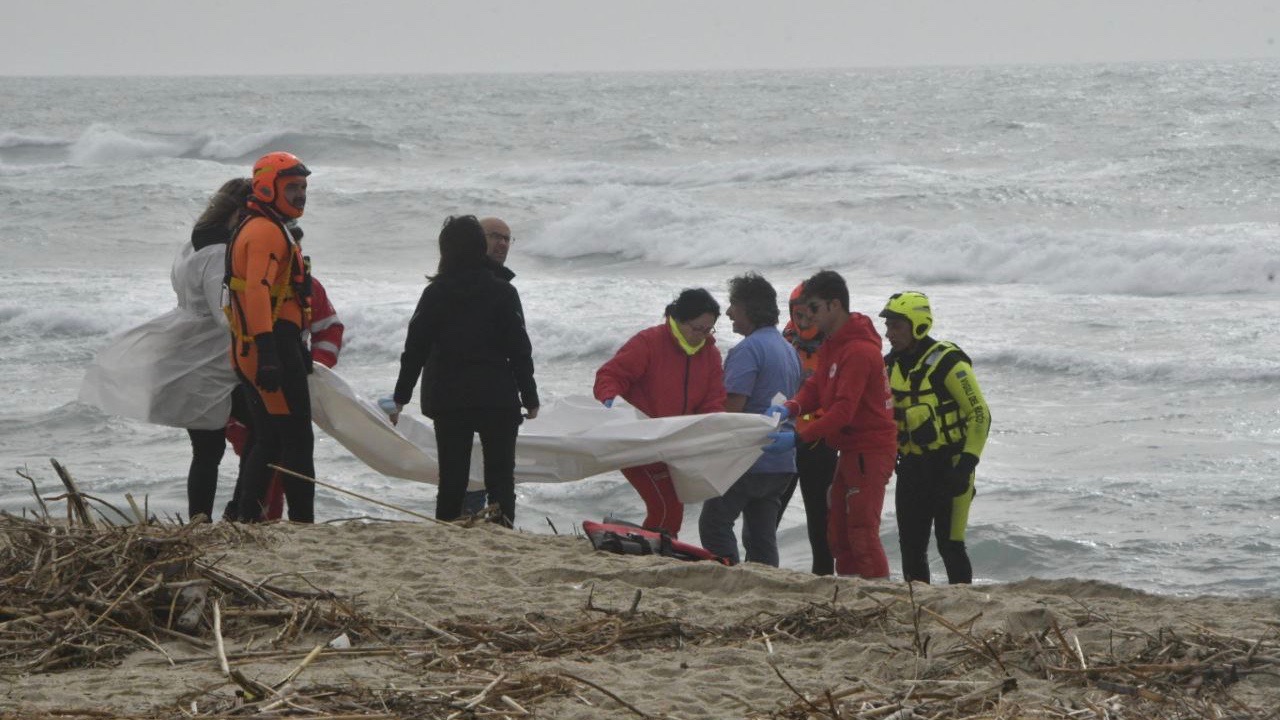At least 62 people have been killed after a boat carrying asylum seekers sank off the coast of Italy’s southern region of Calabria on Sunday, February 26. Survivor testimonies indicate that between 150 and 200 people were on board the wooden sailboat, which set sail from the Turkish city of Izmir on the Aegean coast around February 24. At least 14 children were killed in the shipwreck.
A provincial government official told Reuters that 81 people had survived, of whom 20 had been hospitalized. Interior Minister Matteo Piantedosi stated that 20-30 people might be missing, as search operations continued overnight on Sunday, with divers recovering the asylum seekers’ belongings, including backpacks and clothes. The death toll is expected to cross 100.
The boat reportedly sank after it crashed against rocks amid bad weather as it was trying to reach Crotone. The bodies of the dead were found at a beach near the Steccato di Cutro resort on Calabria’s eastern coast.
Some of those who were on board have been identified as hailing from countries such as Afghanistan, Iran, Pakistan, Somalia, and Syria. Italian authorities have arrested three people on charges of migrant trafficking.
Meanwhile, NGOs and advocacy groups have been highlighting the underlying state policies that have led to the deaths of hundreds of asylum seekers each year.
According to the International Organization for Migration’s (IOM) Missing Migrants Project, at least 220 people have died or gone missing along the central Mediterranean route this year already. Data shows that over 20,000 people have died or gone missing in the area since 2014, making it the deadliest asylum route in the world.
“Once again we find ourselves mourning the unjust death of those who seek a better future fleeing wars and poverty,” said Filippo Ungaro, the director of communication at Save the Children Italy, “while politics, in Italy and Europe, thinks it can solve it [the crisis] with walls and restrictions on NGOs.”
On February 24, the Italian parliament approved into law a decree issued by the government of far-right Prime Minister Girogia Meloni that placed heavy restrictions on rescue work at sea.
Under these rules, refugee and search and rescue organizations, who often spend days conducting multiple rescue operations, would now have to request access to a port and sail to it “without delay” after one rescue operation has been completed. This would effectively bar them from helping any other boats in distress.
The decree had been criticized by the UN and rights groups, who have warned that it would amount to a major violation of international and European Union law and asylum principles.
Governments such as those in Italy and the UK have tried to justify their harsh anti-asylum measures by presenting them as a crackdown on “people smuggling” or trafficking.
However, migrant rights activists argue that such rhetoric seeks to obscure the reasons why asylum seekers are forced to resort to perilous journeys in the first place, especially as these countries continue to ignore calls for the expansion of safe routes of asylum.
In addition to making rescue work more difficult, Italy has also continued to provide funding and other forms of assistance to the Libyan Coast Guard to carry out the interception and detention of asylum seekers, despite evidences of severe forms of abuse, including torture and murder.
Italy is not alone. The European Union’s border agency, Frontex, has also been found to be complicit in these abuses, even as member states continue to push for more severe forms of border controls and surveillance on the continent.
“The Crotone tragedy is the result of precise political choices that prevent legal and safe routes for people to enter Europe,” aid organization Emergency said in a statement on February 26. “The latest facts demonstrate that it is necessary for Italy and Europe to organize a search and rescue mission, to reform the access, asylum, and reception system, and to open legal entry routes for those who seek a better life.”





